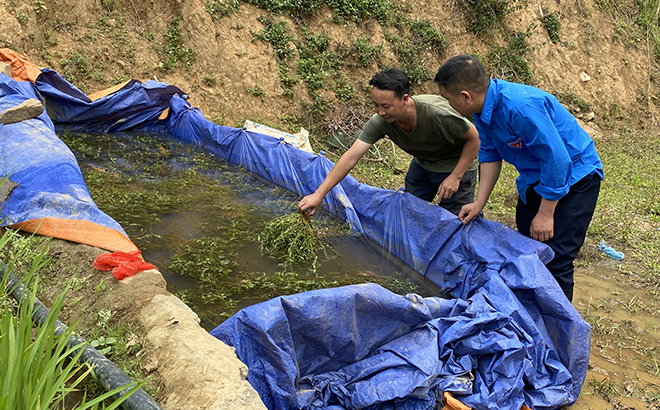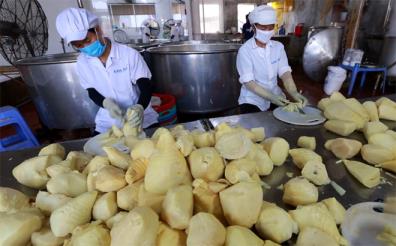Mu Cang Chai residents raise carp on terraced fields
- Thursday, April 6, 2023
Nowadays, a lot of Mong people in Mu Cang Chai district are engaged in the farming of carp on terraced fields after each transplanting season, bringing higher economic value.

|
|
The Mong people in Khao Mang commune, Mu Cang Chai district, create water tanks at upstream of the water source or near the fields for fish to spawn.
|
Other news

In 2024, Nghia Lo Town developed seven new products meeting the 3-star OCOP standard and reevaluated seven products after three years of certification.

Yen Bai develops comprehensive transportation infrastructure, prioritizing projects that connect national highways with the Noi Bai - Lao Cai Expressway, regional linkage projects, and those connecting Yen Bai province with localities in the Northern Midlands and Mountainous region. The focus is on key projects and several important regional and inter-regional connecting roads. As of now, the transportation infrastructure system in Yen Bai has achieved significant progress.

The global Halal market is valued at approximately USD 5 trillion annually, with a strong demand for cinnamon and tea products. This presents significant export opportunities for Yen Bai Province.

In 2024, Yen Bai City achieved vocational training for 2,259 individuals, exceeding the target of 1,790 by 115%. Of this total, 578 people were trained at the college level, achieving 125% of the assigned target of 461.



